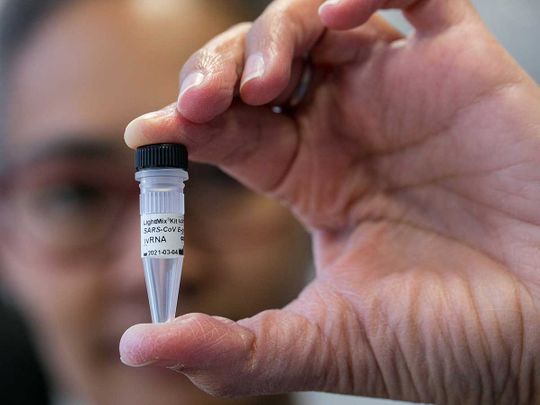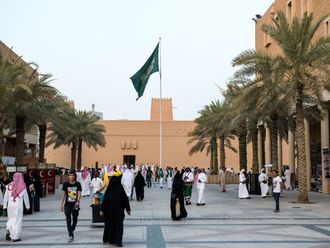
The coronavirus doesn’t kill healthy people. It kills only people with weakened immunity systems. Which means most people can ward off COVID-19. Yet our thoughts always turn to a cure. A drug that can cure.
What’s the treatment? Well, there is no treatment for the virus. In fact, there are no therapies for all coronaviruses, including SARS and MERS.
It is not all doom and gloom. The COVID-19 outbreak has hastened the search for drugs to treat the disease that has now been declared a pandemic. Drugmakers have been racing to find a cure and vaccine. And there has been a smattering of success too.
Doctors in China, Australia and India are reported to have cured patients with a cocktail of drugs, mainly used to treat HIV and malaria. They also added medicines of their choice to the mix. And that includes herbal medicines.
The truth is that there is not yet a cure for the virus that have killed more than 7,500 people and sickened around 185,000 more in 159 countries and territories. What’s heartening is that most people have survived. The mortality rate still hovers only around 3.4 per cent. So there’s no cause for worry.
What’s the treatment now?
At present, the treatment focuses on relieving the symptoms: fluids to reduce dehydration, medication to reduce a fever, and supplemental oxygen in severe cases. Most hospitals direct their efforts to keep the patients healthy and improve their immunity. They bank on antibodies developed by the body to fight the virus. And patients recover on their own.
The Chinese therapy
Since the outbreak started in the city of Wuhan in December 2019, China was confronted with a large number of cases. And they have successfully treated thousands with traditional Chinese medicine. CNN quoted a report from the Chinese Ministry of Science and Technology last month that said more than 85 per cent of coronavirus patients (around 60,000 people) in China were treated with a mixture of herbal remedies and mainstream antiviral drugs.
The Chinese believe their traditional herbal medicines can strengthen the body’s resistance and help patients recover swiftly. A Chinese official last month said at a press conference that herbal medicines had help combat viruses in the past also.
Although traditional Chinese medicines have been endorsed by the World Health Organisation in 2018, western scientists and doctors are sceptical about its safety and effectiveness. They are said to be uncertain about the toxicity of some of the ingredients.
The Australian cure
Researchers in Queensland think they may have found a cure, reports news.com.au. A team of infectious disease experts at the University of Queensland in Brisbane claimed to have made the COVID-19 virus “disappear” with HIV and anti-malaria drugs.
Anti-malarial drug chloroquine and HIV-suppressing combination of lopinavir and ritonavir have shown encouraging results in human trials, and larger scale trials will get underway later this month.
The Indian success
Doctors in India claim to have succeeded in curing coronavirus patients with a combination of drugs used to treat HIV, swine flu, and malaria.
An Italian tourist in Rajasthan was treated at the Sawai Man Singh Hospital in Jaipur, where physicians used a mixture of HIV drugs (lopinavir and ritonavir), chloroquine (anti-malaria drug) and oseltamivir (a swine flu medicine). The patient was cured in two weeks.
What about Ayurveda?
There’s no cure in the Indian traditional medicine of Ayurveda. Most practitioners advocate a regular consumption of Ayurvedic herbs to stimulate the body’s immune system. Some of their suggestions include neem, gooseberry, kutki (a Nepalese herb), guduchi or giloy and basil –– herbs that can build immunity and prevent infection.
Experimental drugs and treatments
In the haste to find a prospective treament, doctors around the world have used possible drugs to stem the virus infections. Here's a list of drugs used for treatment and trials. Please do not use these drugs without medical advice.
Remdesivir: An experimental broad-spectrum antiviral drug originally developed to target Ebola is found to be highly effective at fighting the coronavirus. The treatment is not yet approved for humans, but two clinical trials are underway in China. One trial was recently also approved for patients in Nebraska in the United States.
Chloroquine: A drug that was once commonly used to fight malaria and autoimmune diseases is found to be effective against the virus in lab experiments. At least 10 clinical trials are being carried out.
Lopinavir and ritonavir: The combined drug (Kaletra) has been used in the fight against HIV and AIDS since 2006. Chinese researchers say the combination had cured coronavirus patients. A patient in South Korea too recovered after treatment with Kaletra.
APN01: Developed in the early 2000s, the drug was used against SARS. A clinical trial will start soon in China to explore the drug’s potential to fight COVID-19.
Favilavir: The drug was designed to treat inflammation of the nose and throat. It has been approved in China to treat symptoms of COVID-19 and is found to have been effective in a clinical trial of 70 people.
Blood plasma: Japanese drugmaker Takeda Pharmaceutical Co. said it was developing a new drug from the blood plasma of people who have recovered. It is based on the idea that antibodies from recovered patients will boost the immunity of new patients.
What’s the future?
Clinical trials underway in Australia, China and the US should yield results in the near future. A combination of drugs used against HIV and malaria has been the most effective so far. That doesn’t mean a cure has been found.
The search continues. That’s a big positive. The urgency to find drugs to treat SARS and MERS tapered off as the diseases faded away. But that wouldn’t happen in the case of COVID-19. The speed of infections has been so alarming that researchers can’t afford to rest.
A cure has to be found. For the sake of the old and infirm among us.








